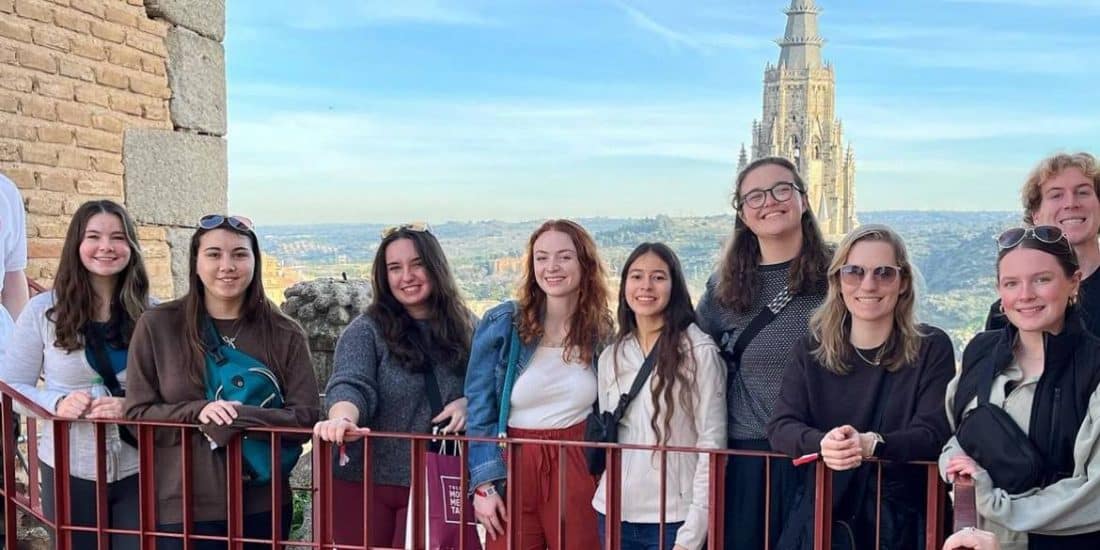Student Returns to Her Roots During J-Term Internship
The first day of an internship is usually uneventful—orientations, introductions, and icebreakers. But the first day of Sarah Walton’s ’23 (Biology and Environmental Studies double-major) J-term internship took place on a boat.
Though not everyone would feel comfortable on a boat in the middle of January, Walton is used to it. She grew up on the water near the Chesapeake Bay, and it was her background in bay conservation that led her to pursue environmental studies at Randolph-Macon.
Walton eventually arrived to her destination: Hog Island. Here, Walton worked with a Ph.D. candidate in Virginia Commonwealth University’s (VCU) Department of Biology, Emily Riffe, and others to collect sediment samples and vegetation from the beach.
“We took a boat out to the barrier island and used a GPS to find where the sites were,” Walton said. “My job was to replace temperature sensors around the vegetation where the other students were taking the sediment samples.”
This field work brings back a lot of memories for Walton, who grew up engaging in numerous school projects on the beach. Her favorite involved a trip to the Outer Banks, where she measured sand dunes to chart the amount of erosion on the beaches. That echoes the lab work she’s doing under the guidance of Julie Zinnert, Assistant Professor of Biology at VCU. During her internship under Zinnert, she studied the erosion of sand dunes and how different vegetation can help support the structure of the dunes. The internship was nostalgic, but it was also rewarding to see how much deeper her understanding of beach ecology has grown over time.

During Walton’s second week with Zinnert, she worked alongside Megan Nicholson, another VCU student, in the greenhouse. During that time, they prepared different vegetation and recreated the plants’ growing conditions and environment.
“Dr. Zinnert is pretty hands off,” Nicholson said. “She lets us work by ourselves and decide the best course of action. She’ll check in with us and give us guidance when we need it.
Walton found the change of pace to be different from learning in a classroom, and the flexibility that Zinnert provided allowed for much more intellectual curiosity and freedom. “She’s very helpful and understanding of why we are doing certain things rather than just following a given protocol,” Walton said.
Zinnert loves having new students in her lab and giving people the opportunity to learn and grow. She has been teaching at VCU for six years now, and used to be a student in the same lab she teaches in now. In the short time that she has known Walton, Zinnert was already impressed by her growth and her confidence. This is her favorite thing about working with students.
“I love seeing their transformation, and I love empowering them,” she says.
Working with Zinnert has given Walton the opportunity to explore multiple components and perspectives of field work, lab work, and graduate research. She got the chance to do it in a space that is enthusiastic about the pursuit of knowledge.
“My philosophy is that if you really want to be here, I’ll take you. I don’t care where you are in terms of your skill level, your past experience—we’ll find what you can do, what you’re good at, and I’ll give you experience” Zinnert said.
With such an accepting and willing mentor, this month-long lab gave Walton all the information she needs to pursue graduate education and find her place in environmental studies. This experience was filled with field trips, lab research, and meeting new people who are also passionate about the environment. It was an amazing opportunity for any student to get real-world experience and to gain a better understanding of academic processes.




